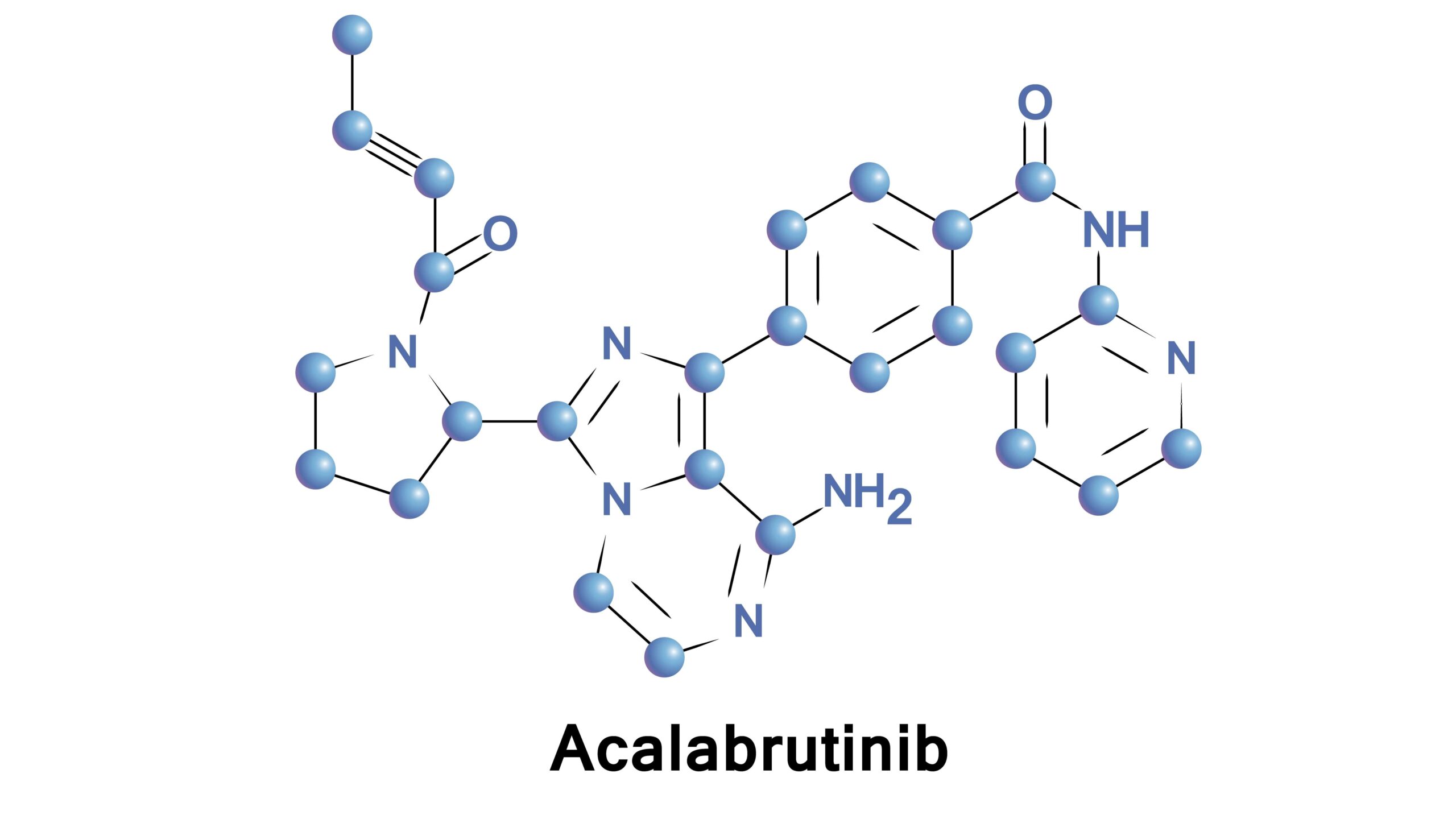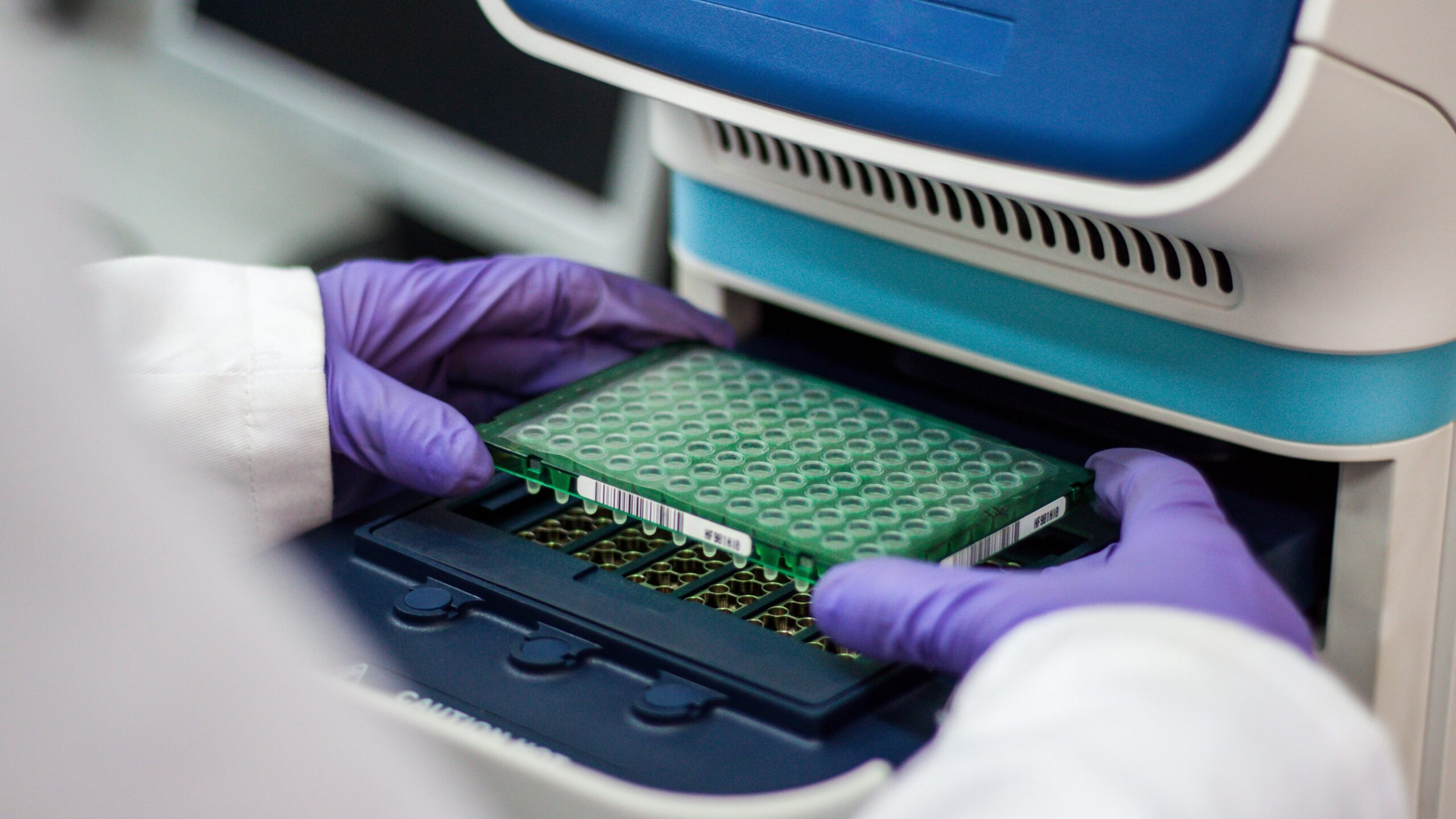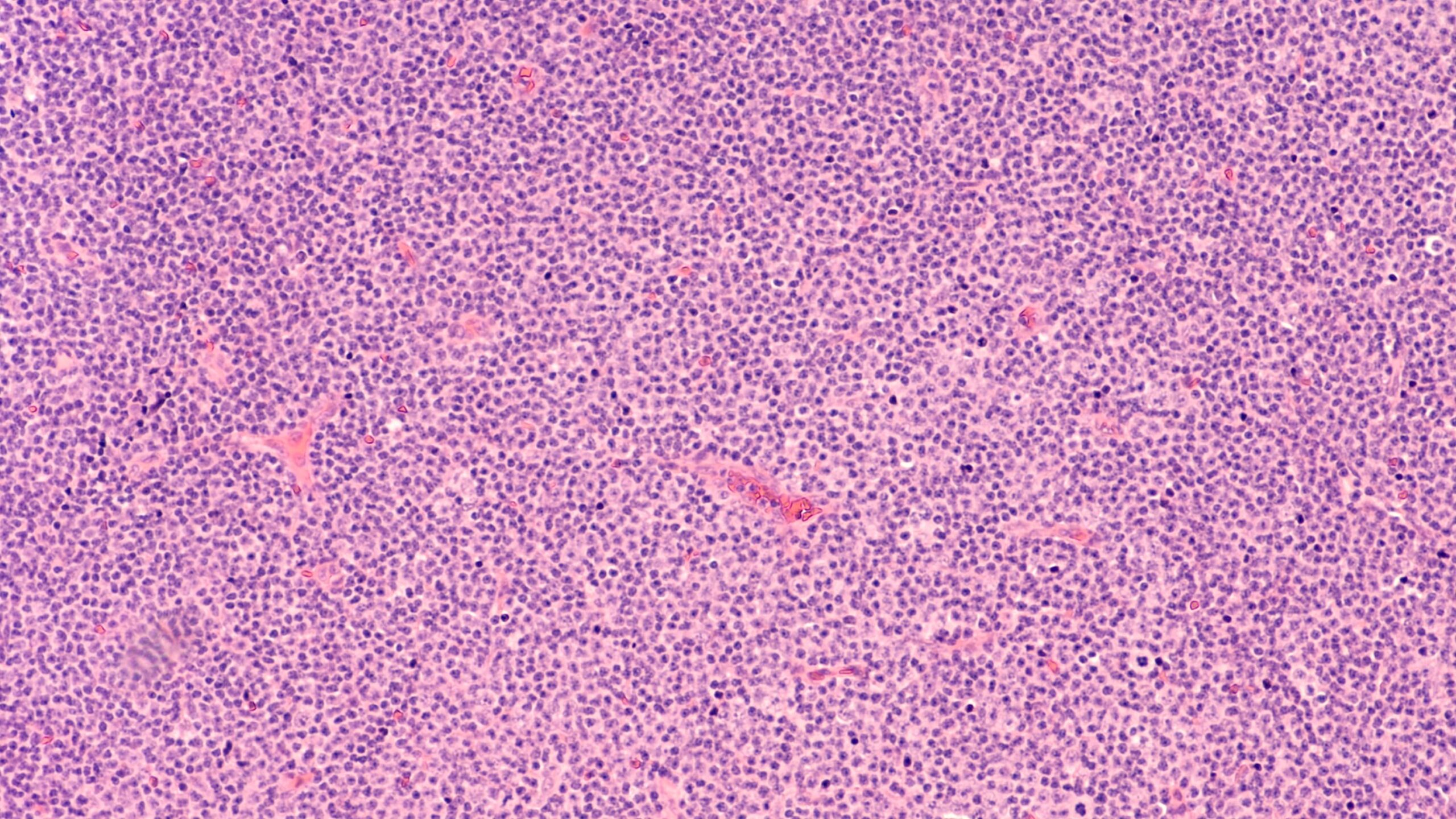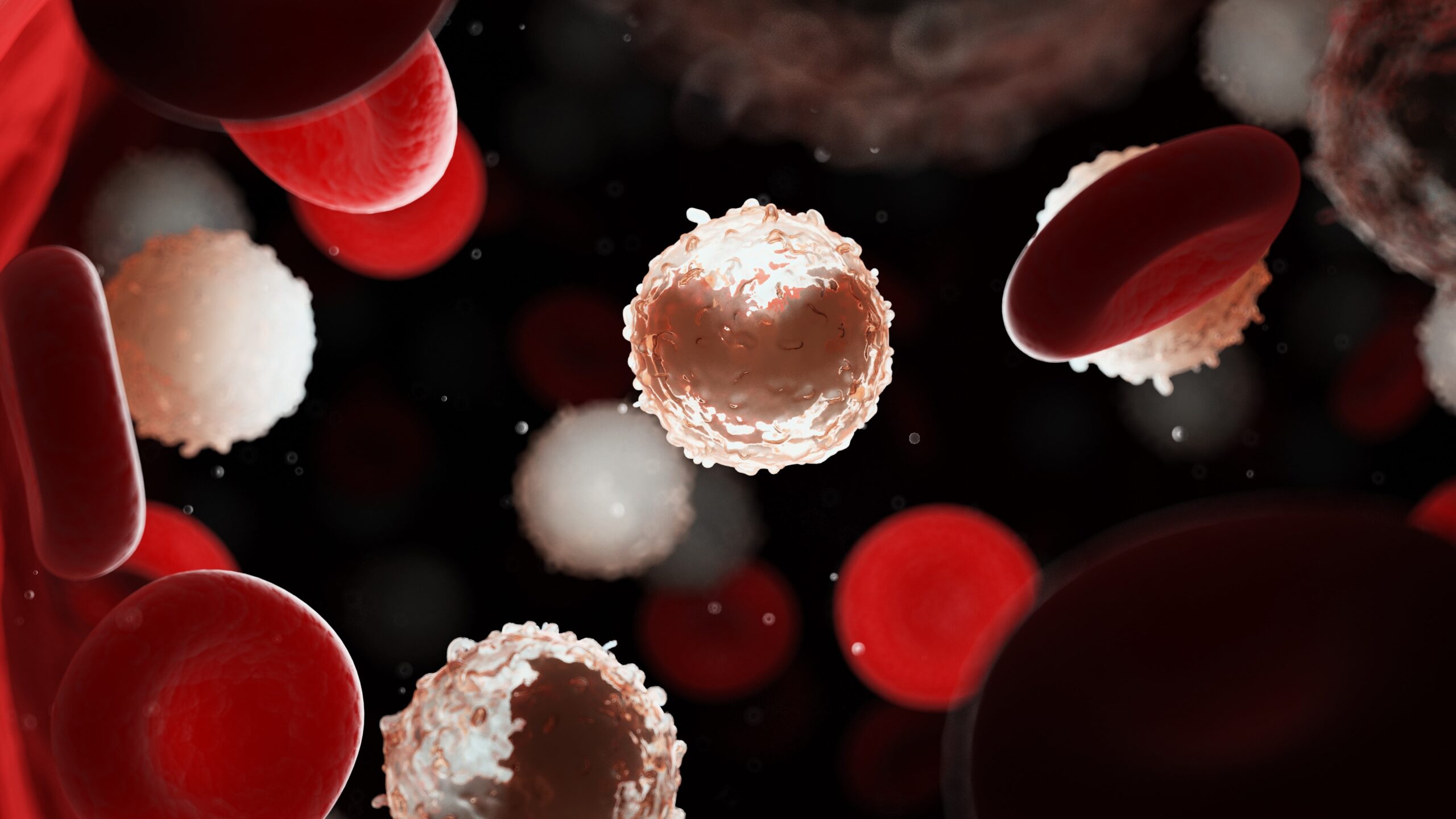
Acalabrutinib is a Bruton’s tyrosine kinase (BTK) inhibitor approved for the treatment of chronic lymphocytic leukemia (CLL). According to Dr. Jan Burger, acalabrutinib induces durable but mostly partial remissions in most patients, commonly leading to its use as a long-term monotherapy. Dr. Burger and colleagues evaluated a time-limited regimen of acalabrutinib combined with obinutuzumab in treatment-naïve patients with CLL.
Based on their early results, the researchers suggested a 24-cycle regimen of acalabrutinib with obinutuzumab induced remissions and significantly reduced bone marrow disease at 6 months after treatment. The preliminary data were presented at the European Hematology Association 2023 Hybrid Congress.
Designing a Time-Limited Acalabrutinib Regimen
Starting in September 2020, 20 participants had been enrolled at the MD Anderson Cancer Center and were included in the preliminary analysis. The cohort had a median age of 65 years (range, 40-83 years), 10% had del17p or TP53 mutation, 45% had unmutated IGHV status, and 65% had Rai stage III or IV disease.
The primary end point was the rate of treatment-free remissions, and secondary end points included durability of treatment-free remissions, efficacy of retreatment in relapsed patients, and factors that predicted prolonged remission. Undetectable measurable residual disease was defined as <0.01% presence of clonal CLL cells as measured by 4-color flow-cytometry.
The time-limited regimen consisted of acalabrutinib 100 mg twice a day for 24 cycles combined with 6 monthly infusions of obinutuzumab, starting in cycle 3. Patients without complete remission after 8 cycles could receive 6 additional doses of obinutuzumab in cycles 9 to 14.
At baseline, the median absolute lymphocyte count was 30.8×109/L (range, 3.6-188.4×109/L) and median β2-microglobulin was 4.2 mg/L (range, 2.2-7.9 mg/L). After a median follow-up of 16 months, 18 (90%) patients remained on the study. Authors noted 1 patient died due to complications from a presumed bacterial pneumonia and 1 was discontinued due to cholecystitis and neutropenia.
Investigators estimated a rate of 94.4% for both 2-year progression-free survival and overall survival. Interim analyses at month 8 and month 14 included 13 and 12 eligible patients, respectively. At month 8, responses included 15.4% complete remissions, 76.9% partial remissions, and 7.7% stable disease. At month 14, responses included 25% complete remissions and 75% partial remissions. Authors noted no patients had relapsed or progressed during treatment.
Additionally, the level of bone marrow infiltration by CLL cells decreased from a median of 83.6% (range, 36.1%-94.0%) at baseline to a median of 2.0% (range, 0.0%-63.2%) after 8 months, 0.21% (range, 0.0%-6.65%) after 14 months, and 0.14% (range, 0.0%-0.45%) after 24 months.
In closing, the authors supported the potential feasibility of a time-limited regimen of acalabrutinib for patients with untreated CLL, although they acknowledged that “longer treatment and follow-up are warranted to determine the durability of responses after therapy discontinuation.”





 © 2025 Mashup Media, LLC, a Formedics Property. All Rights Reserved.
© 2025 Mashup Media, LLC, a Formedics Property. All Rights Reserved.